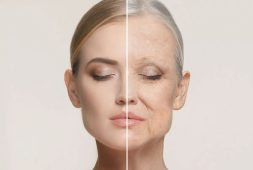
According to new data taken from NORC at the University of Chicago, 2020 marks the unhappiest year Americans have been in 50 years. In 1972, scientists started tracking the citizens’ happiness using General Social Survey, which has been collecting data every other year since then, says the Associated Press (AP).
They also began a COVID Response Tracking Study for the first wave of the pandemic which will be conducted before, during and after the coronavirus outbreak. 2,000 adult representatives from different U.S. households participated in the survey online, or by phone in May of this year.
After researchers analysed all responses, they discovered that a merger 14% of participants claimed to be “very happy” – which is an all time low in statistics. In 2018, when the researchers collected data the last time regarding the people’s general attitude and behavior, they gathered that 31% of Americans called themselves “very happy.”
With a comparison made to the 2018 and 2020 reports, the feeling of being isolated and lonely all doubled (50% vs. 23%), which was expected because of the ongoing COVID-19 pandemic, which out the whole country into a quarantine last spring.
Researchers from NORC at the University of Chicago released a statement saying:
“Findings from the first wave of 2020 data suggest that the unique and unprecedented coronavirus crisis is having a negative impact on the well-being of Americans. Exposure to the coronavirus, either personally or geographically in a highly-impacted area, is linked with greater feelings of loneliness and other negative emotional states.”
The University of Chicago also reported on other notable findings they came up with:
- More Americans (42%) believe that their children’s standard of living when they are older will be better than their own standard of living. This number was 57% in 2018, marking “the lowest level of optimism for the next generation since first measured in 1994.”
- In 2018, only 10% reported feeling a lack of companionship often. That number rose to 18% in May 2020.
- Feeling anxious, depressed, and irritable is also more common with 18% of Americans reporting these feelings in 2020 compared to 13% in 2018.
- More Americans (30%) report losing their temper more often after the COVID-19 outbreak compared to the same feeling reported after 9/11 (20%) and President John F. Kennedy’s assassination (19%).
Despite the ongoing development of the coronavirus pandemic, the surveys were conducted even before the massive wave of country-wide protests that exploded after numerous police killings of Breonna Taylor, George Floyd, Tony McDade and other Black Americans in different states.
There are no clear answers as to how the Black Lives Matter protests and the anxious unrest are presently impacting the wellbeing of the Black Americans and the country as a whole until the researches are able to collect the remaining date at the end of the year.
The researchers commented that:
“The public is reacting differently than after other national tragedies. Additional waves of data will be collected over the coming months and will reveal how Americans’ responses to the coronavirus may be evolving over time.”



